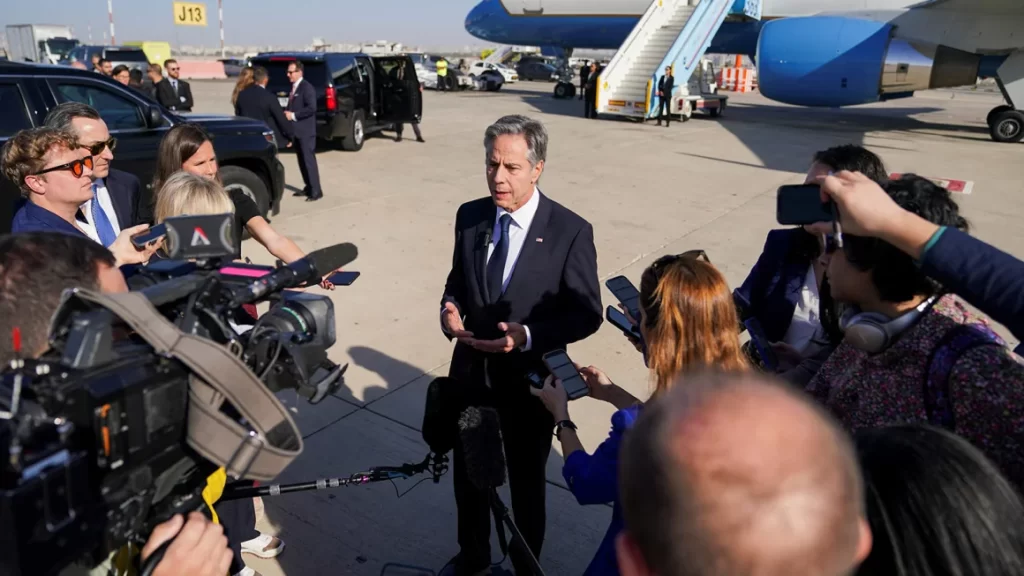US Secretary of State Antony Blinken is set to travel to Brussels on Tuesday, just a week after the US presidential election, as European diplomats brace for a potential second term of Donald Trump. The visit comes at a time when European leaders are grappling with the uncertain future of US foreign policy, especially concerning NATO, Ukraine, and economic relations.
With the election results still fresh, European officials are already preparing for the possibility that Trump could be re-elected for another four years. Leaders like French President Emmanuel Macron have called for a “more united, stronger, and more sovereign Europe” in response to concerns about the reliability of US support. Meanwhile, the German government under Chancellor Olaf Scholz faces its own domestic challenges, with the coalition teetering on the brink of collapse.
Macron expressed a sentiment shared by many in Europe: “We cannot entrust our security to the Americans forever.” This remark highlights the growing realization among European leaders that the US may no longer be as committed to European defense as it has been in the past. Trump and his running mate, JD Vance, have repeatedly cast doubt on the US’s continued support for Ukraine in its fight against Russia. Trump has even suggested that the US could push Ukraine into a ceasefire or peace deal with Russia, leaving European nations to take on a larger role in supporting Kyiv.
During his campaign, Trump indicated that he would only uphold NATO’s mutual defense commitments for countries that contribute adequately to their own defense budgets. He recalled a conversation with the leader of a NATO country who asked if the US would defend their country in the event of a Russian invasion, given that they were not meeting their defense spending obligations. Trump’s response was blunt: “No, I would not protect you. In fact, I would encourage them [Russia] to do whatever they want. You’ve got to pay. You’ve got to pay your bills.”
Trump’s aggressive stance on defense spending is just one area of concern for European officials. On the economic front, he proposed a universal 10% tariff on imports during his campaign, reigniting fears among European nations who still remember the trade tensions of his first term. Diplomatic sources indicate that current US officials have privately urged European leaders to raise these concerns during Blinken’s visit, particularly regarding tariffs like those imposed on aluminum during Trump’s presidency.
Blinken is scheduled to meet on Wednesday with NATO and European Union officials to discuss ongoing support for Ukraine, with a particular focus on how the alliance can continue assisting Kyiv in the face of Russian aggression. Despite concerns over Trump’s potential return, NATO countries are bracing for the possibility of renewed pressure on defense spending, although many do not expect this to lead to a full-blown crisis.
A former US diplomat, reflecting on the tensions during Trump’s first term, noted that his foreign policy was likely to remain transactional. While many European diplomats were alarmed by Trump’s tough rhetoric on defense spending, they did ultimately increase their own budgets, largely due to US pressure. As Blinken heads to Brussels, his visit is seen as part of the Biden administration’s broader strategy to rebuild alliances that were strained during Trump’s presidency.
Under Biden, the US has provided billions in aid to Ukraine, both in military assistance and financial support. The administration has made clear its intention to continue backing Kyiv for as long as needed, even as Trump’s positions on Ukraine remain more ambiguous. Recent reports indicate that Trump and Ukrainian President Volodymyr Zelensky held a phone conversation last Wednesday, agreeing to maintain communication and cooperation, though Zelensky acknowledged that the specifics of Trump’s policies remain unclear.
Zelensky also emphasized Ukraine’s right to determine its own peace terms, warning that any concessions made to Russia could lead to further demands from the Kremlin. “Predators always demand more,” he cautioned, signaling his reluctance to settle for anything less than a just peace.
In light of these developments, European officials are increasingly worried that, if the US reduces its support for Ukraine, the burden of aid will fall on Europe. This could become even more difficult if the Trump administration imposes additional tariffs that impact European economies.
As the possibility of a second Trump presidency looms, European countries are already strategizing how to navigate the shifting dynamics. Some plan to highlight their economic ties with the US, emphasizing the jobs their businesses have created in America. Others are focusing on issues like tough immigration and crime policies, hoping these will resonate with Trump’s administration. How these strategies will unfold remains to be seen, but European diplomats are preparing for the challenges that lie ahead.
Blinken’s trip to Brussels is expected to be a critical moment for discussing these issues and setting the stage for continued cooperation—whatever the outcome of the US election.







